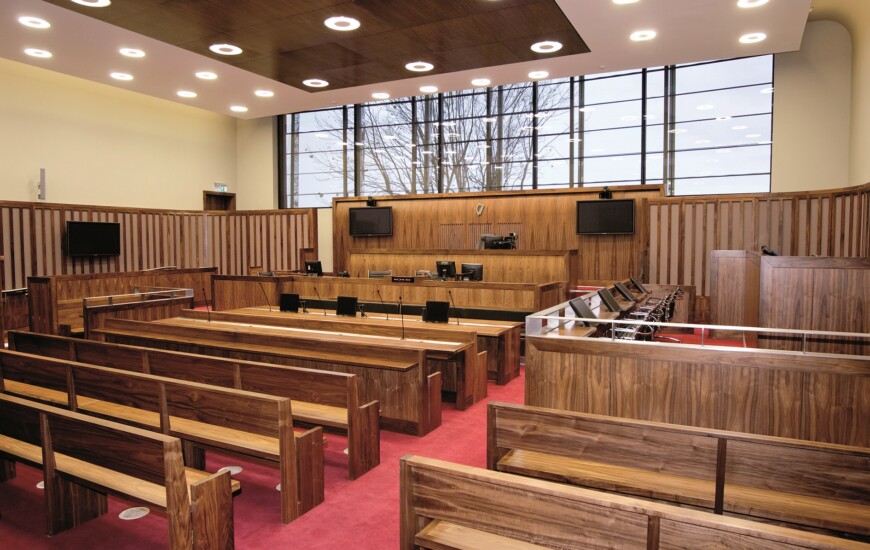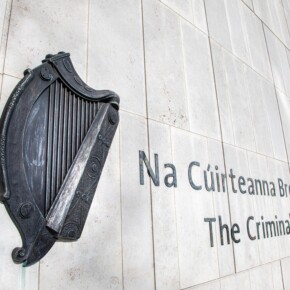Driver who caused brain injury fails to show for court sentencing
Dublin People 14 Apr 2025
By Natasha Reid
A bench warrant has been issued for a driver who left a musician with lifelong catastrophic injuries after hitting him as he crossed the road on his way home from work.
Dublin Circuit Criminal Court heard that the victim, who attended court in a wheelchair, required emergency life-saving surgery, was unconscious for 14 weeks after the accident and still doesn’t remember the two years before it.
He has been left with a brain injury and can no longer play his musical instruments or paint.
In a victim impact statement read on behalf of his mother, the court was told the victim feels “robbed of the life he had” and trapped.
“I’m encapsulated in a body that doesn’t work as it should,” the victim said. “I’m no longer able to do the things that made me happy.”
The driver of the car, Mihail Trofim (27) pleaded guilty to careless driving causing serious bodily harm on June 8, 2022, at the Old Navan Road, Blanchardstown.
Trofim of The Copse, Citywest Demesne, Tallaght also pleaded guilty to having no insurance on the day. The court heard that he had purchased insurance from a broker, who had defrauded him.
Sergeant Paul McDonnell testified that the injured party was crossing the road around 8.15pm that day when Trofim’s Mercedes hit him at 83 to 88km per hour in a 60km per hour zone.
After the impact, the accused turned his car around and returned. “I’m the driver. I couldn’t see. I couldn’t see. The sun,” he had said.
The court heard that Trofim, who had no previous convictions, was fully cooperative with gardaí
“Because of the sunlight, I didn’t see him cross,” he said. “I heard the impact.”
After hearing the facts of the case on Thursday, Judge Martin Nolan adjourned the case overnight to consider sentence.
When the case was initially called on Friday court was told Trofim had attended hospital due to a medical condition. The court was later told gardai had made enquiries and could not then locate Trofim at the hospital. Judge Martin Nolan then issued a bench warrant for Trofim.
A number of medical reports were handed in to the court, which showed that the injured man sustained life-threatening injuries, along with broken arms, legs and ribs. He spent a year and a day in hospital, including in the National Rehabilitation Hospital.
He has been left with double vision, slurred speech, memory difficulties and impaired use of his limbs. He also requires the assistance of a wheelchair and constant care from his family, especially his mother, who moved counties to care for him.
A witness told gardaí that he heard the loud engine of a car approach from the village of Mulhuddert, as the man crossed the road, after looking. The witness looked behind and saw what he described as a sports vehicle. The car did not slow as it approached him.
“I just knew an accident was going to happen,” he said, describing the car ‘powering on at speed around the corner… couldn’t have seen around the corner’.
“I saw him fly up into the air,” he said of the pedestrian.
Another witness said the driver looked shocked in the moment following the impact, with ‘wide eyes’.
Sgt McDonnell agreed with James Dwyer SC, defending Trofim, that a witness had said that the injured party had crossed the road peacefully, wearing earphones, and that the accused was visibly distressed at the scene.
Mr Dwyer said that Trofim, who was from Moldova, had been defrauded, paying a significant amount of money to a broker for insurance, which turned out not to be valid.
Sgt Mc Donnell agreed that there was an issue with brokers selling fake insurance to motorists of Eastern European origin in Dublin.
He also agreed that he had seen documents showing that Trofim had transferred a sum of money to a charity.
Mr Dwyer told the court that his client lives with his partner and child, and also provides care to another family member, who has significant injuries.
He said that he doesn’t take alcohol or drugs, but goes to gym and was previously a wrestler.
“This offence was recently introduced by the Oireachtas for offences that have catastrophic consequences but not a high moral culpability,” Mr Dwyer said of careless driving causing serious bodily harm.
“He was clearly careless. When the sun was blinding, he should have driven slower, not faster,” he said.
“I’m asked to re-express his remorse. He is of excellent character, driving for a living, living a blame-free life,” he said. “He has committed an offence that has had outrageous and catastrophic circumstances.”
The court heard that the maximum period of imprisonment for the offence is two years, and the maximum fine is €10,000. There is no mandatory disqualification.
Counsel for the DPP read out a victim impact statement prepared by the injured man’s mother, who had accompanied her son to court.
She said that, since the accident, her son suffers from anxiety and depression.
“He feels robbed of the life he had,” she said, explaining that he was a singer, who wrote his own music and played a number of instruments, with his music available on Spotify and YouTube.
She said that he also loved to walk, and always had his camera with him to take photos of nature.
“He struggles to maintain his mental wellbeing,” she said. “He doesn’t want to see his friends.”
She explained that he’s very conscious of his slurred speech.
“He doesn’t feel lucky to survive the accident,” she said.
However, he pushes himself, she added.
She said he was a healthy 32-year-old, who was into fitness and was travelling home from his work as a technician when he was struck.
She said that he still does not remember the two years before the accident. His camera went missing from the hospital where he was taken; the photos on it could have assisted him to piece together the time before accident.
She said that he also lost access to a lot of his online work, as he could not remember passwords.
“It’s unlikely he’ll ever work again,” she noted. “He now requires 24-hour support.”
She said that, due to his brain injury, he is vulnerable to falls and must wear a personal alarm.
The man, who has a degree in art and design, enjoyed painting, but is now unable to paint due to double vision and lack of dexterity. He also has memory loss.
She said that he does not have a normal gait, walking does not come naturally to him and he can walk only short distances, so uses an electric wheelchair when out.
“He feels trapped,” she said.
He has the use of his right arm and hand to an extent, but must use a cup with a lid. He has paralyses of his lower lip and needs his food cut up. He has to wear special footwear.
“He spends his days doing rehabilitation exercises,” she explained.
She said the family had to undertake multiple adaptations of the house as well as purchasing a wheelchair accessible car.
She and her husband had retired to another county before the accident, and had to move back to Dublin to care for him. She said that the lives of the whole family had stopped and they now spend less time with their other children and grandchildren.
She said that her son used to build Lego with his nephew, but does not want the boy to see him or hear him in his new condition.
His own words were also read to the court.
“I’m encapsulated in a body that doesn’t work as it should,” he said. “I’m no longer able to do the things that made me happy.”
Even playing with the dog is no longer possible because it can now knock him over.
Meanwhile, he said, his friends are achieving milestones such as buying houses, getting married and having children.
“I often feel like I’m a burden,” he said.











